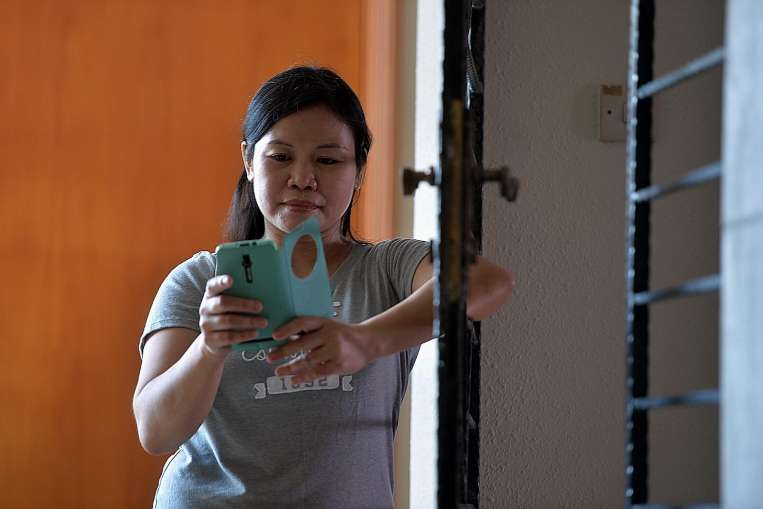
Portal lets maid take control of earnings sent home to Philippines
By Joanna Seow,
Remitting money home is sometimes a frustrating exercise for Filipino maid Nilda Sesaldo, 37.
Despite sending home a generous portion of her hard-earned money for her family to spend on necessities like groceries, the amount often fell short.
Much of the 10,000 pesos (S$300) which she sent home monthly to Cebu was often spent on undesirable things.
“Once, I sent money back for medicine, but one of my brothers used some of it for gambling,” Ms Sesaldo said.
Last month, she could ensure that the remittance was used for what she intended – by sending her 17-year-old daughter SMS codes to redeem gift vouchers for groceries at the supermarket and a new phone at a local shop.
They can be used to redeem anything from mobile phone top-ups to health insurance.
Portal co-founder Jonathan Chua, a Chinese Filipino in his 40s who has lived in Singapore since 2003, started the site in 2014 to give workers a tool to manage their money.
While the uptake was slow initially, the portal now has about 1,400 users here, with some $10,000 transacted a month.
“The way cash remittance service works now is it empowers the recipient. We want to empower the sender instead,” he said.
Senders can pay for the vouchers by credit card, PayPal or at remittance store I-Remit, which incurs a service fee of US$1.99 (S$2.85) or more. They can also buy site credits with cash, at no extra charge.
Mr Chua, who is also chief executive of a software development company, spends his Sundays in malls or at the Singapore Botanic Gardens to help maids without credit cards load credits into their accounts.
Figures from the Philippine central bank website show that from January to November last year, Filipinos working in Singapore remitted US$1.25 billion.
Another platform trying to improve foreign maids’ financial situation is employment portal HelperChoice. It aims to help them get jobs without having to fork out several months’ salary in agent fees, and to provide employers with more freedom in searching for a suitable helper.
The site, which started in 2012 in Hong Kong, caught on in Singapore recently.
There are now close to 3,000 maids in Singapore on its LinkedIn-style platform, and 1,100 employers, 250 of whom are Singaporeans.
The service is free for helpers, while potential employers pay a monthly fee.
If they find a match, they can talk directly through the site’s messaging system and make further arrangements.
Hong Kong-based founder Laurence Fauchon said her experience hiring a helper spurred her to start the site.
HelperChoice did not provide figures on the total number of matches made in Singapore, but it has placed more than 5,000 workers in jobs globally.
Marketing manager Chia H. H., 38, said she pays $49 a month for the site to save on the $2,000 agency fee, as well as to browse through more profiles, not just the five or six that agencies usually provide.
“The downside is I have to settle the documentation myself, but I’ve found someone who is hopefully a good match for my family,” said Ms Chia, who has a two-year-old daughter.
She found a Filipino maid to work for her family after her contract ends next month.
Mr Jolovan Wham, executive director of the Humanitarian Organisation for Migration Economics, said employment agencies should consider adopting such a model,where agencies collect less fees by allowing employers and maids settle some of the administrative matters themselves.
“It’s a recognition that domestic workers are exploited by exorbitant recruitment fees,” he said.





